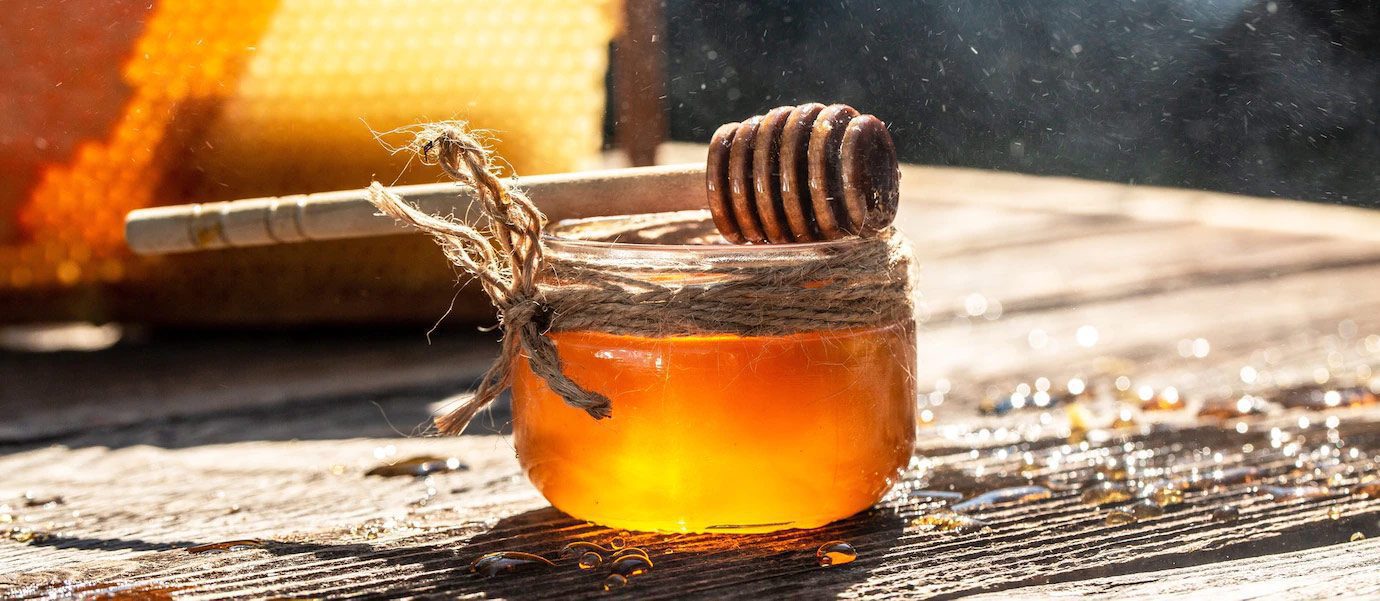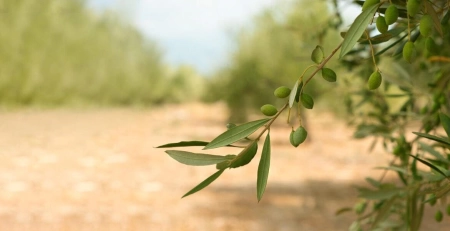Thyme honey and its special characteristics
What rapeseed honey is to us in this country, thyme honey probably is to the Greeks. The herbaceous plant from the labiates family does not particularly like our harsh winter climate, apart from the sparse occurrences of winter, mountain and field thyme. Although thyme is quite highly regarded in Germany as a garden and spice plant, there are no large-scale thyme fields.
This is the main reason why it is virtually impossible to harvest pure thyme honey from Germany. A glance at the label of a genuine thyme honey reveals that this speciality mainly comes from Greece, Spain or southern France. In the following article, thyme honey will be given the attention it deserves. It is a first-class variety honey that scores points in terms of taste. Why is thyme not simply adapted to the climate in this country? What conditions do beekeepers who want to harvest thyme honey have to contend with? What is this mysterious plant that can be found on almost every spice shelf, yet lives a shadowy existence in the wild?
Thyme – the plant
The thyme genus (Thymus) consists of over 200 species, whereby the “true thyme” (Thymus vulgaris) is probably the best known. At up to 40 centimetres, the semi-shrub does not grow very tall, but its flowering time is a dream for bees: under good conditions, the medicinal plant sometimes flowers from May until October. The western Mediterranean region is the plant’s original home; interestingly, it feels particularly at home within barren landscapes. Thyme particularly likes to grow on rocky slopes or on barren dry grasslands.
Traditions
Thyme has always been something special. In pre-Christian times, the deceased in Egypt were embalmed with the herb. The Greeks, on the other hand, used thyme as an incense that stimulated the spirit. In almost all Mediterranean cultures, thyme is mentioned as a remedy for coughs and bronchitis. When numerous epidemics spread in the Middle Ages, people burned thyme, assuming that the smoke would protect them. And thyme also has a long history as a sweetener, as the benefits of honey as a sweetener were already appreciated in ancient Greece.
Bees in Greece
Greece is not only one of the most popular travel destinations, it is also a paradise for bees. Not for nothing is it said that Greece has the most beehives in Europe and that Greek honey is a special delicacy. In the case of thyme honey, this is true. It is an absolute delight, the genuine, varietal thyme honey. It crystallises quite quickly, which is why it is often offered in a finely stiff consistency. If you have a clear thyme honey, you can warm it slowly and carefully in a water bath when crystallisation begins, but never above 40 degrees so as not to destroy its valuable ingredients.
Pure aroma
Real thyme honey tastes of wild herbs and untamed nature. It has a very intense aroma, with its spicy notes coming through. It is a little more tart than other flower honeys, yet its pithy elements do not dominate to the detriment. It is a connoisseur’s honey that is worth its price. It comes from various countries, such as Greece (mainly Crete), Spain, but also the South of France or Italy.
Thyme honey as a remedy?
Thyme was elected a medicinal plant in 2006. The essential oil in particular is highly effective; even Commission E has recognized its medicinal use against bronchitis, catarrh of the upper respiratory tract and whooping cough.
Honey is a foodstuff without explicit healing properties. However, the antibacterial activity cannot be dismissed and many alternative practitioners recommend using thyme honey for cold symptoms.
Source: https://honig-und-bienen.de/thymianhonig/ (zuletzt abgerufen am 29.10.2022)



